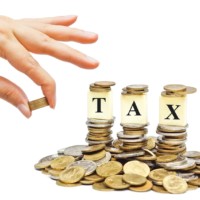
The suggestion came from researchers at University College London, who pointed out that there is currently property worth £123bn which is only being used sparingly, whether due to foreign ownership or second home ownership.
Jonathan Bourne, one of the researchers, explained that low-use properties are very concentrated in small numbers of desirable areas.
“In such cases simply building more homes is not going to solve the problem, as the issue is intense competition for property, not a lack of places to live,” he continued.
“An empty homes tax may be more effective, with the potential to generate a not inconsiderable income for local authorities, whilst taxing people who are typically not eligible to vote in local elections, or encouraging them to rent out their properties.”
Leave residential landlords out of it
James Mole, independent financial adviser at Gingko Independent, said that all measures which would make property more affordable for first-time buyers were welcome, but warning that such a tax may detract from the important point that the nation desperately needs to build more housing stock.
He added that such a tax should really only target commercial landlords and those who own a second home. “I would be concerned if residential landlords had to pay a tax when they are between tenants for a few months, as the loss of rent is often already a financial strain.”
Pushing lenders to accept short-term lets
Greg Cunnington, director of lender relationships at Alexander Hall, suggested there could be some positive side effects to an empty homes tax, arguing that with the housing shortage anything that could “motivate extra stock” would be a boost.
He added: “One side effect would most likely be more of these properties let out, and I could imagine Air BnB type short lets being attractive for the increased flexibility on future re occupation of the properties, so it would push more lenders to focus on accepting this type of tenancy agreement also.”
Can departments work together?
David Sheppard, managing director of Perception Finance, pointed out that for the tax to work, multiple departments across both local and national government would need to share the data to prove that the property is empty.
“While it will be good to see an increase in the tax revenues, the Government also does not need to be dedicating significant resource to appeals, negating any benefit to the increased income. That said, the idea is a worthwhile one either to try and free up housing stock or boost the revenues of local authorities and is one that should be explored further,” he concluded.
Increasing stamp duty
The suggestion of an empty homes tax comes hot on the heels of the government’s confirmation that it wants to introduce a 1% stamp duty surcharge on property sales to overseas buyers.
Mole said that he was a “big fan” of extra stamp duty for overseas buyers, particularly at the moment with the value of the pound and house prices being restrained by Brexit.
“From what I can see a lot of overseas money is flooding into UK property for this very reason, which will further push up prices in the future as stock shortages get even worse,” he added.















